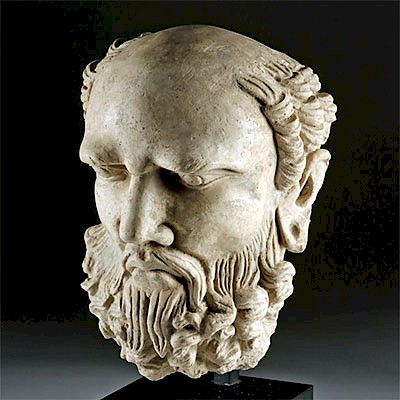Islamic Nishapur Engraved Glass Bottle, ex-Christie's
Lot 132
About Seller
Artemis Fine Arts
686 S Taylor Ave, Ste 106
Louisville, CO 80027
United States
Selling antiquities, ancient and ethnographic art online since 1993, Artemis Gallery specializes in Classical Antiquities (Egyptian, Greek, Roman, Near Eastern), Asian, Pre-Columbian, African / Tribal / Oceanographic art. Our extensive inventory includes pottery, stone, metal, wood, glass and textil...Read more
Categories
Estimate:
$1,500 - $2,200
Absentee vs Live bid
Two ways to bid:
- Leave a max absentee bid and the platform will bid on your behalf up to your maximum bid during the live auction.
- Bid live during the auction and your bids will be submitted real-time to the auctioneer.
Bid Increments
| Price | Bid Increment |
|---|---|
| $0 | $25 |
| $300 | $50 |
| $1,000 | $100 |
| $2,000 | $250 |
| $5,000 | $500 |
| $10,000 | $1,000 |
| $20,000 | $2,500 |
| $50,000 | $5,000 |
| $100,000 | $10,000 |
| $200,000 | $20,000 |
About Auction
By Artemis Fine Arts
Jan 16, 2020
Set Reminder
2020-01-16 10:00:00
2020-01-16 10:00:00
America/New_York
Bidsquare
Bidsquare : Ancient | Asian | Ethnographic
https://www.bidsquare.com/auctions/artemis-gallery/ancient-asian-ethnographic-4799
Featuring classical antiquities, ancient and ethnographic art from cultures encompassing the globe. Artemis Fine Arts info@artemisgallery.com
Featuring classical antiquities, ancient and ethnographic art from cultures encompassing the globe. Artemis Fine Arts info@artemisgallery.com
- Lot Description
Ancient Near East, Iran, Nishapur, ca. 10th century CE. A beautiful bottle that is free-blown from nearly opaque glass of a soft honey-yellow hue. The vessel is defined by a slightly concave base with a rough pontil scar, a tall body with a rounded shoulder, and a tapered neck with a flared, in-folded rim. The exterior of the neck is decorated with engraved repeating chevrons within horizontal borders, and the body exhibits a pair of abstract zoomorphic creatures between a pair of broad, zigzagging columns. Size: 3.6" W x 6.2" H (9.1 cm x 15.7 cm).
Medieval Nishapur was one of the great centers of Islamic culture which experienced its pinnacle of prosperity and cultural achievement in the tenth century under the Samanids through the eleventh century under the Turkish Seljuks. A series of violent earthquakes during the twelfth and thirteenth centuries caused substantial damage to city, and the unrelenting Mongol army completed the destruction of Nishapur. During its height, however, glass from Nishapur was known throughout the ancient world with examples being found as far afield as Venice, Italy and Japan.
Provenance: ex-private New York, USA collection; ex-Christie’s, London (April 1989)
All items legal to buy/sell under U.S. Statute covering cultural patrimony Code 2600, CHAPTER 14, and are guaranteed to be as described or your money back.
A Certificate of Authenticity will accompany all winning bids.
We ship worldwide and handle all shipping in-house for your convenience.
#151619Body and shoulder repaired from multiple pieces, with restoration to some areas of base and body, and with chips and adhesive residue along new material and break lines. Minor abrasions and nicks to base, body, and neck, with softening to some engraved details, and light weathering film. Pontil mark on underside of base. A pontil scar or mark indicates that a vessel was free-blown, while the absence of such a mark suggests that the work was either mold-blown or that the mark was intentionally smoothed away or wore away over time. Light earthen deposits throughout.Condition
- Shipping Info
-
All shipping is handled in-house for your convenience. Your invoice from Artemis Gallery will include shipping calculation instructions. If in doubt, please inquire BEFORE bidding for estimated shipping costs for individual items.
-
- Buyer's Premium



 EUR
EUR CAD
CAD AUD
AUD GBP
GBP MXN
MXN HKD
HKD CNY
CNY MYR
MYR SEK
SEK SGD
SGD CHF
CHF THB
THB
















